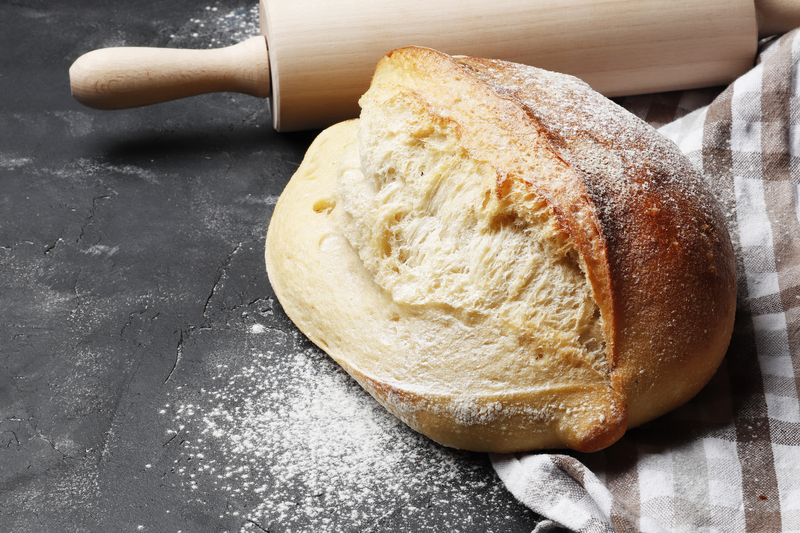 Baking bread is a time-honored tradition that has been cherished for centuries.
Baking bread is a time-honored tradition that has been cherished for centuries.
Whether you’re a seasoned baker or just starting out on your bread-making journey, understanding the ingredients that go into creating that perfect loaf is crucial.
Among the many ingredients that play a pivotal role in bread baking, fats stand out as key components that can significantly impact the final product.
But what fat is best for baking bread? Let’s delve into the world of fats and discover the answers.
The Importance of Fat in Bread Baking
Fats are essential components of bread-making, contributing to the overall flavor, texture, and keeping qualities of the loaf.
They play a vital role in providing moisture, tenderness, and richness to the bread.
Moreover, fats can influence the crust’s color and thickness, as well as the shelf life of the finished product.
Types of Fats for Baking Bread
 When it comes to choosing the right fat for baking bread, several options are available, each with its own unique characteristics.
When it comes to choosing the right fat for baking bread, several options are available, each with its own unique characteristics.
The choice of fat can depend on personal preference, dietary considerations, and the desired outcome of the bread.
Here are some commonly used fats for baking bread:
- Butter – Traditional Richness
Butter is a classic choice for adding flavor and richness to bread. Its natural milk solids can contribute to a golden, flavorful crust.
However, butter has a lower melting point compared to other fats, which might affect the dough’s handling and final texture.
- Olive Oil – Mediterranean Delight
Olive oil is a popular choice for many Mediterranean-style breads.
Its fruity and robust flavor can infuse the dough with a distinctive taste.
Olive oil also offers the benefit of being heart-healthy, making it an attractive option for health-conscious bakers.
- Vegetable Oils – Versatile and Neutral
Vegetable oils, such as canola, sunflower, and soybean oil, are neutral-flavored fats that can be used in a wide range of bread recipes.
They contribute moisture and tenderness to the crumb while allowing other flavors in the bread to shine.
- Lard – Traditional and Flavorful
Lard, rendered pork fat, was a common fat used in bread baking in the past.
Its unique flavor and ability to create a flaky texture in baked goods make it an intriguing option for certain types of bread, especially those with a rustic appeal.
- Coconut Oil – Exotic Twist
Coconut oil is known for its distinctive tropical flavor and high saturated fat content.
When used in moderation, it can lend an exotic twist to bread, but its strong flavor might not suit all bread varieties.
Factors to Consider When Choosing a Fat for Baking Bread
 The choice of fat should align with the type of bread you’re aiming to create.
The choice of fat should align with the type of bread you’re aiming to create.
Consider these factors when making your decision:
- Flavor. Choose a fat that complements the overall flavor profile of your bread. For instance, butter might be ideal for a rich, indulgent loaf, while olive oil could enhance a rustic, whole-grain bread.
- Texture. Some fats contribute to a softer crumb and tender crust, while others can create a more crispy or flaky texture. Decide on the desired texture and choose the fat accordingly.
- Dietary Preferences. Consider any dietary restrictions or preferences, such as a preference for plant-based fats or the desire to avoid saturated fats.
- Cultural Influence. Traditional recipes often use fats that are culturally significant. These fats can contribute to the authenticity and character of the bread.
Bottom Line – What Fat is Best for Baking Bread?
In the world of bread baking, fats play a vital role in shaping the taste, texture, and overall experience of the finished product.
The best fat for baking bread depends on a combination of factors, including personal preference, intended flavor profile, and the type of bread you’re making.
Whether you opt for the richness of butter, the health benefits of olive oil, or the versatility of vegetable oils, understanding the role of fats will empower you to create bread that’s not only delicious but also uniquely your own.


